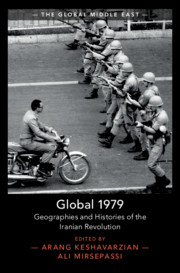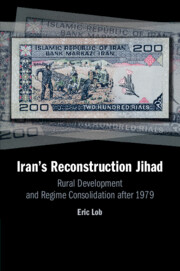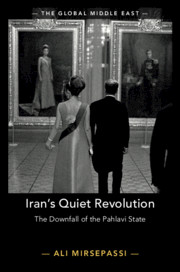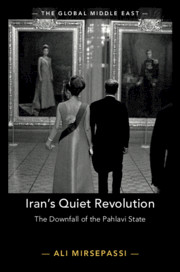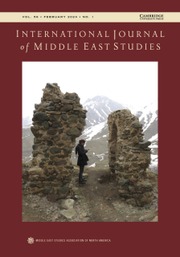Global 1979
The Iranian revolution of 1979 not only had an impact on regional and international affairs, but was made possible by the world and time in which it unfolded. This multi-disciplinary volume presents this revolution within its transnational and global contexts. Moving deftly from the personal to the global and from the provincial to the national, it draws attention to the multiplicity of spaces of the revolution such as streets, schools, prisons, personal lives, and histories such as the Cold War and Global 1960s and 70s. With a broad range of approaches, Global 1979 conceives of the Iranian Revolution not as exceptional or anachronistic, but as an uprising constituted by multiple, interwoven geographies and histories, which disrupt static and bounded notions of the local, national, regional, and global.
- Highlights global and transnational processes at play in the run up to and aftermath of the Iranian revolution
- A multi-disciplinary approach, combining personal, political and social history to explain the 1979 revolution
- Ideal for undergraduate and taught postgraduate courses on the Iranian revolution, the history of the Middle East and the concept of revolutions more broadly
Reviews & endorsements
'Serious scholarship perceives revolution as a fundamentally international or 'inter-social' process. Yet rarely are revolutions narrated as such. This important collection brings together valuable studies that uncover the overlooked global dimension of the Iranian revolution of 1979. Empirically rich and conceptually insightful, Global 1979 offers a perspective that presents revolution as a complex interplay of transnational effects and local experiences of perceived and real injustice.' Asef Bayat, University of Illinois, Urbana-Champaign
'Highly original, theoretically sophisticated and meticulously researched, the contributions collected here represent a major breakthrough in scholarly efforts to understand the enigma of the 1979 revolution in Iran.' Stephanie Cronin, University of Oxford
'Transcending scholars' focus on causes and outcomes of 1979, this volume simultaneously de-exceptionalizes the revolution and illuminates its specifically Iranian mix of global backgrounds, relationships, and imaginations. Wonderful chapters covering a boy from a small town, the Fedai's Iranization of Brazilian insurgency, Takhti's 1968 funeral, and the IRGC's regional guerilla dimension will inspire Iranian and global historians alike.' Cyrus Schayegh, Graduate Institute of International and Development Studies
Product details
June 2021Adobe eBook Reader
9781108982658
0 pages
This ISBN is for an eBook version which is distributed on our behalf by a third party.
Table of Contents
- Introduction Arang Keshavarzian and Ali Mirsepassi
- 1. A quiet revolution: in the shadow of the cold war Ali Mirsepassi
- 2. Globalizing the Iranian revolution: a multiscaler history Arang Keshavarzian
- Part I. Global Shadows:
- 3. Seeing the worlds from a humble corner: a political memoir Ali Mirsepassi
- 4. Iranian diasporic possibilities: tracing transnational feminist genealogies from the revolutionary margins Manijeh Moradian
- Part II. Militarized Cartographies:
- 5. 'In a forest of humans': the urban cartographies of theory and action in 1970s Iranian revolutionary socialism Rasmus Elling
- 6. Revolutionaries for life: the IRGC and the global guerrilla movement Maryam Alemzadeh
- Part III. Hidden Genealogies:
- 7. 'A sky drowning in stars': global '68, the death of Takhti, and the birth of the Iranian revolution Arash Davari and Naghmeh Sohrabi
- 8. 'We must have a defense build-up': the Iranian revolution, regional security, and American vulnerability Christopher Dietrich
- Part IV. Circulating Knowledge:
- 9. The criminal is the patient, the prison will be the cure: building the carceral imagination in Pahlavi Iran Golnar Nikpour
- 10. The cold war and education in science and engineering in Iran, 1953-1979 Hossein Kamali
- Part V. Aspirational Universalisms:
- 11. Between illusion and aspiration: Morteza Avini's cinema and theory of global revolution Hamed Yousefi
- 12. Planetarity: the anti-disciplinary object of Iranian studies Negar Mottahedeh.

